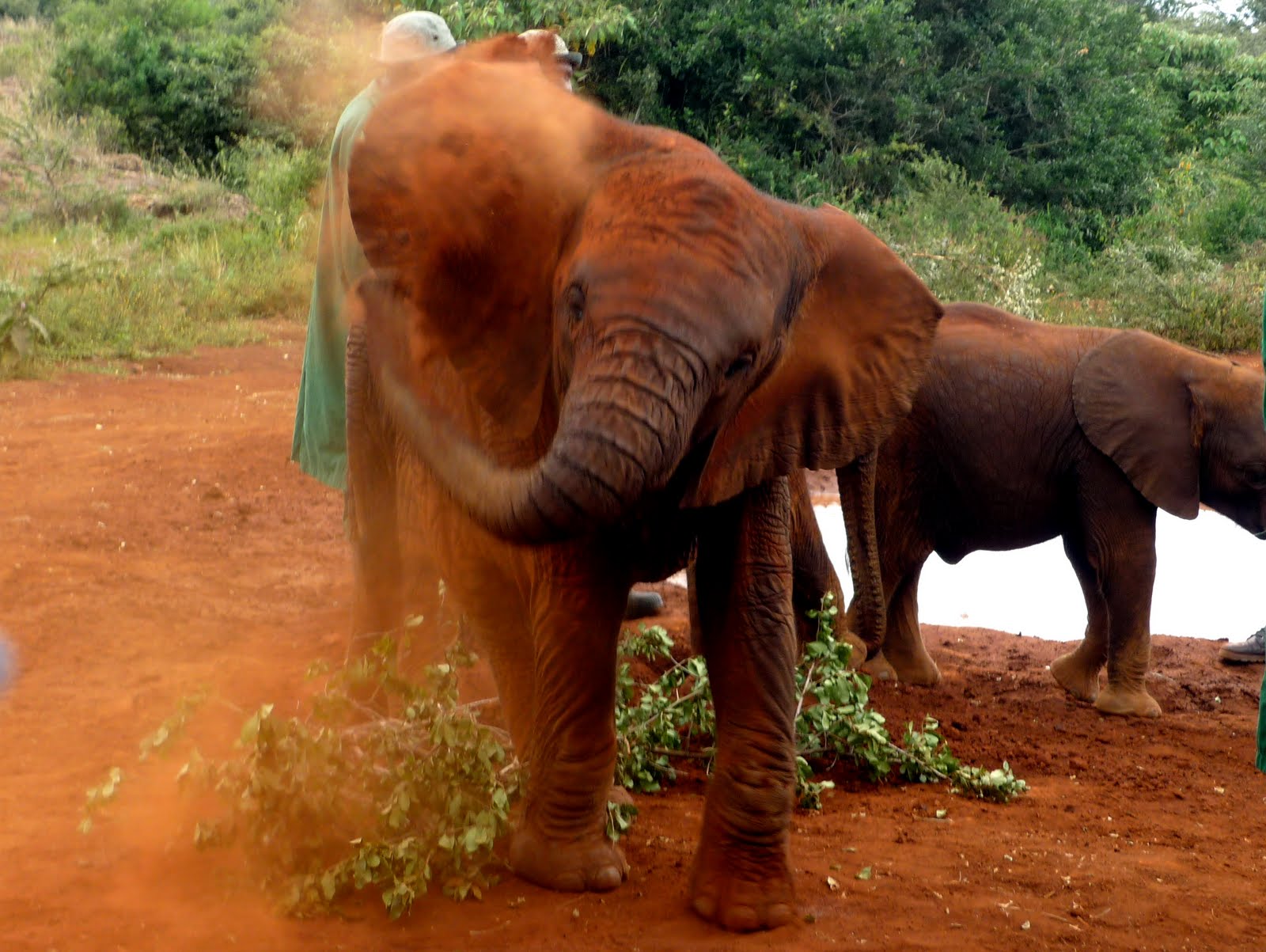I don't remember when I began to hear about Kibera. I was certainly unaware of it upon arriving in Nairobi. The first few times it was mentioned, I probably siphoned it away with all of the other words I don't understand (cities, street names, Swahili dialects). But soon I came to know what a Google search can tell you in an instant: Kibera is a serious slum.

I took this picture from the grounds of the CDC Kenya. An international beacon of health overlooking notorious squalor; irony with a view.
If anyone saw
The Constant Gardener with Ralph Fiennes and Rachel Weisz (which I did not because it looked scary and thus went against my never-watch-anything-scary-lest-you-have-nightmares-for-months policy), parts were filmed on location here. According to people who seem to know things, Kibera is either the first or second largest slum in Africa. There is another massive one in South Africa that may be larger, but apparently that one has wide-spread electricity so it's upgraded to something akin to Slum 2.0. Kibera is Slum Beta.
But this isn't a competition, and even if it were, it's impossible to get any kind of accurate population count. Varying estimates have listed the Kibera population as anywhere between several hundred thousand to several million.
Several million people living here:

Over 40% of the patients who receive HIV services at our clinic are residents of Kibera, and on Monday some of my coworkers took me in to see what it's like. I'll admit I was expecting something pretty awful. Michael told me stories of people who were vigilant about not leaving any valuables in their parked car, only to return and find all four wheels missing. I also heard about sewage running in rivers through the streets (which is true, especially after the rains), and the intense slum violence after the 2007 elections, where whole swathes of the town were torched and mobs uprooted these steel rails (the international railway from Mombassa to Uganda passes daily through Kibera):

But everyone knows that lowered expectations result in pleasant surprises. So, I've been sitting on this experience for a few days, mulling it over, trying to figure out a way to articulate my feelings above a third grade reading level, with minimum success. But I will still do my best:
I want to say that I enjoyed it. That I was pleasantly surprised by the sense of community I found, with shops and commerce all around (fruit stands, butcher shops, shoe stands, hair salons, CD stands), with lively music playing around each bend, no car traffic, and kids laughing in the streets.

We visited the
Umande Trust BioCenter latrines where "human investments" (as they happily euphemize them) are converted into gas energy for heating stoves of a communal kitchen.

And we visited a school in summer session, which was made of nothing more than a maze of corrugated tin where you have to duck and climb a ladder to reach the second floor, but the children excitedly speak in unison, "Hi how are you visitors?We are fine.Thank you for visiting our school!" And I was pleasantly surprised that no one sent their kids to ask us for money (despite the dire need), as is often done on streets around the world. Instead, kids ran up to shake our hands and then ran off giggling and whispering.
"Motto: The roots of education are bitter, but the results are sweet."

But you can't ever admit to enjoying exposure to such extreme breaches of human rights and decency, where
flying toilets act as an accepted solution to the threat of violence, where open sewage running through the streets brings contamination and disease to the kids playing in it, and where the average family lives on $1 USD per day. Perhaps what I mean to say is that I found parts of the experience to be uplifting where I expected nothing but an onslaught of despair. Or that it made me feel as though the work we do here has a direct impact on those most in need- that same sense of community connection I used to feel walking through the Tenderloin in San Francisco.
Or maybe I've realized a personal preference for open sewage vs. the unrelenting diesel smog that pervades the rest of Nairobi.
Mostly, I am left with the feeling that I would like to learn more. That I would like to go back, if opportunity presented itself. That this is a place in which I would possibly like to do future work. If only to suss out the feasibility of a
SODIS community intervention, the first thing that jumps to mind when I see miles of corrugated roofing.



















































